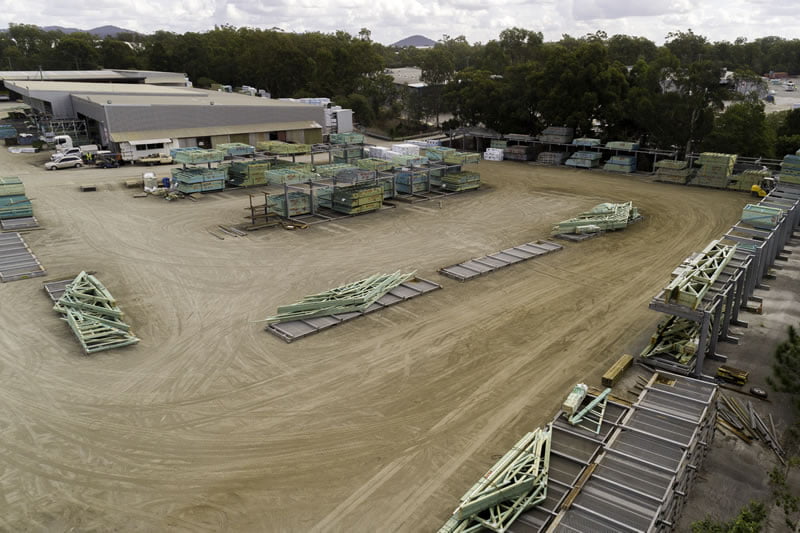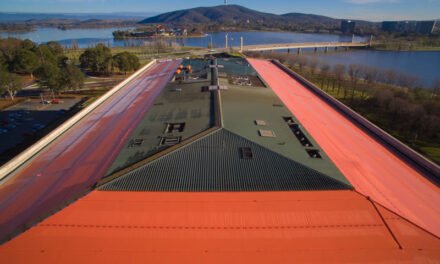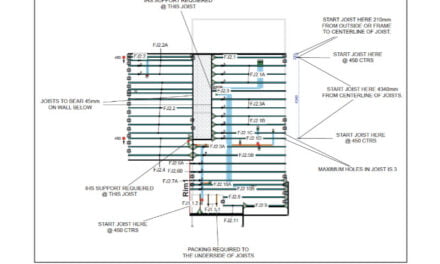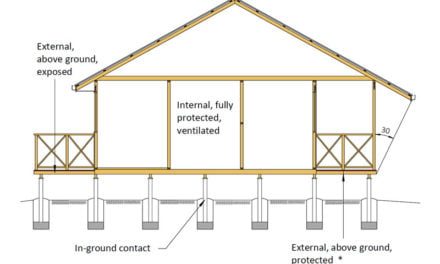Forestry and Construction are two of the worst industries for safety, but a focus on WH&S can be literally profitable.
The safety data isn’t very reassuring for the timber industry. While things have definitely improved over time, the three sectors that cover most of the industry’s activities are at the top of the list for workplace fatalities in Safe Work Australia data. While those sectors also cover non-timber-based workers who are also engaged in dangerous work (including fishers, farmers and people working in steel and concrete construction), the standalone stats for incidents, especially injuries, in timber-based businesses are still too poor.
In many cases, the problem comes down to humans. Some of it is hard to control entirely: people are always going to get tired or be momentarily distracted enough to make a bad choice. But research in the field has conclusively shown that the more companies focus on safety, the better the chances are that human error won’t cost a life or limb. In the very worst-case scenarios, having a comprehensive safety culture in your workplace makes all the difference with the authorities and your insurance company.
Cost, time and difficulty are often cited as reasons people do less than they could regarding safety, but, as our case study shows, it’s a process that can open up a whole new line of business or help other companies save money.
Safety as business
Mass Products is a company based on efficient, safety-based solutions. With a long history of helping the water and waste water industries manage their infrastructure and access needs, the team is used to finding answers for tricky questions. So when one of their customers asked for help removing the risk of falls from heights when loading trucks, they were certain they could do the job.
“It was a timber framing manufacturer, and they no longer wanted to load their trucks at height” says Daniel Ramsden, contracts administrator at Mass Products. “They asked us find a solution so they could stop personnel climbing on top of the trucks. We searched the current market to see if we could find something that worked, but there was nothing out there.”
Instead, the request led to the design of a new product. “We thought, what if we could pack freight on the ground, and then lift the entire load onto the truck? And that’s how Roadpod was born,” Ramsden says.
The first iteration was a redesign of some flat-rack containers, re-engineered to be more lightweight, less cumbersome and easier to use. It solved the initial problem, but the team knew they could do better.
They spent the next two years in design and development, working through issues ranging from safe lifting and securing of the pods, to binding loads and the fabric of the pods themselves.
“In the early stages we worked with a customer of ours who was really open to helping us get the system right,” says Ramsden. “The 40-foot pods, for instance, have a lightweight mesh floor, so we were able to get as much weight out of the pods as possible. The first mesh used was too light and bent when people stood on it. We went back to the drawing board and put in a heavier mesh.”
This pragmatic approach, and being ever-open to feedback, has meant that the product that finally went to the broader market was absolutely fit for purpose. Made from mild steel, Roadpods come in several different sizes and styles, able to suit different types of trucks as well as different materials. They’re supplied with integrated tie-down straps to restrain and secure loads on the pods.
They are designed to be loaded flat on the ground, using forklifts as usual or by hand, and then lifted onto the trucks where they are held in place with locators and container pins. They can also be stored in the company’s custom-designed racks, which has additional benefits for customers.
“The system eliminates 100% of falling from height risk,” Ramsden says. “We’ve had great feedback from our customers. They’ve all said things along the lines of ‘we haven’t had any injuries since implementing the system’ or ‘there’s no need for our customers to climb on top of trucks anymore.’”
While most of the early business has come from timber truss manufacturers and timber suppliers, the market is rapidly expanding. “It means we’re constantly redesigning and developing, even now,” says Ramsden. “When we’re approached by new industries, whether that’s structural steel, steel reinforcing or glass manufacturers, that pushes us to come up with an effective solution for them as they have highly varied needs. We’ve built some window carriers and, as you’d guess, they’re very different to the bases we use for trusses. We’re moving into general freight as well, because we know that every industry that transports can benefit from the safety advantages.”
Flow-on benefits
It isn’t just Mass Products’ business that has benefited from the Roadpod. The pods are mostly around the two-tonne mark and frequently weigh seven to nine tonnes once loaded with trusses. For timber merchants and steel-based industries, those weights can be up around 20T per pod. That means a serious lift is needed.
“Most timber truss firms need around an 11-13 tonne forklift,” Ramsden says. Accordingly, they have partnered with several reputable manufacturers to supply lifting equipment for heavier loads if required as part of the contract.
“We can also get pricing and so on from our truck supplier partners,” he adds, “so that if you need a new vehicle at the same time as you’re moving to the Roadpod system, we can organise that as well. You don’t need to negotiate with a whole series of people separately and can instead get a good deal all at once.”
For customers already running a fleet, many trucks can be adapted. “Your 40-foot and 45-foot Skel trailers are easy to convert, all we need to do is put on a set of container pins and Roadpod locators, so that’s a really simple retrofit,” says Ramsden.
“If you have an existing trailer with a tray, we can retrofit that with pins, but because you’ve got the weight of that tray, which could be between one and two tonnes, you’re not being as efficient as you might be with the load you can carry. When it comes to rigid body trucks, it depends on how old the customer’s truck is. If they’re getting towards the end of their 10-year lifecycle, we recommend getting a new truck that we can fit out from scratch.”
Customers also receive far more than a safety advantage for their investment. Part of the Roadpod system is bespoke racking where pre-loaded pods can be stored while awaiting transport.
“There’s a definite reduction in damage to product,” Ramsden points out. “There’s no need to stack frames on the ground, where you get a lot of truss chords cracking and bending. They’re more supported on the pods and can be kept on the racks until they’re needed on site, where they arrive in much better condition.”
Most significantly is the enormous reduction in truck down time. Instead of being stationary for an hour or 90 minutes while a job is being loaded piece by piece, the driver can be in and out in the time it takes to place and secure the pod. “We’ve timed it in real time and it can be as quick as three minutes unloading the empty pod then picking up a preloaded one and dropping it on,” says Ramsden.
In the all-too-regular event of a job being cancelled or changed, the amount of time saved is doubled. Instead of unloading and re-loading the cancelled delivery (knowing you’ll have to load it all again when it’s required), the pod can come off, go onto the rack, be replaced with the required job and wait, ready to go again.
Ramsden says that the time savings equal serious money for customers. At the FTMA National Conference earlier this year, he presented the case study of one customer saving $414,000pa in dwell time alone. As he says: “It was born from safety, but when we started to implement the system, we thought ‘Gee, hang on a minute!’ The efficiencies in your loading turn-around times are a really brilliant by-product and we quickly realised it was the other major selling point.”
For more, visit www.roadpod.com.au
Image: Roadpods being loaded ready to take a truss job to site in pre-arranged order. Photo courtesy Mass Products.











